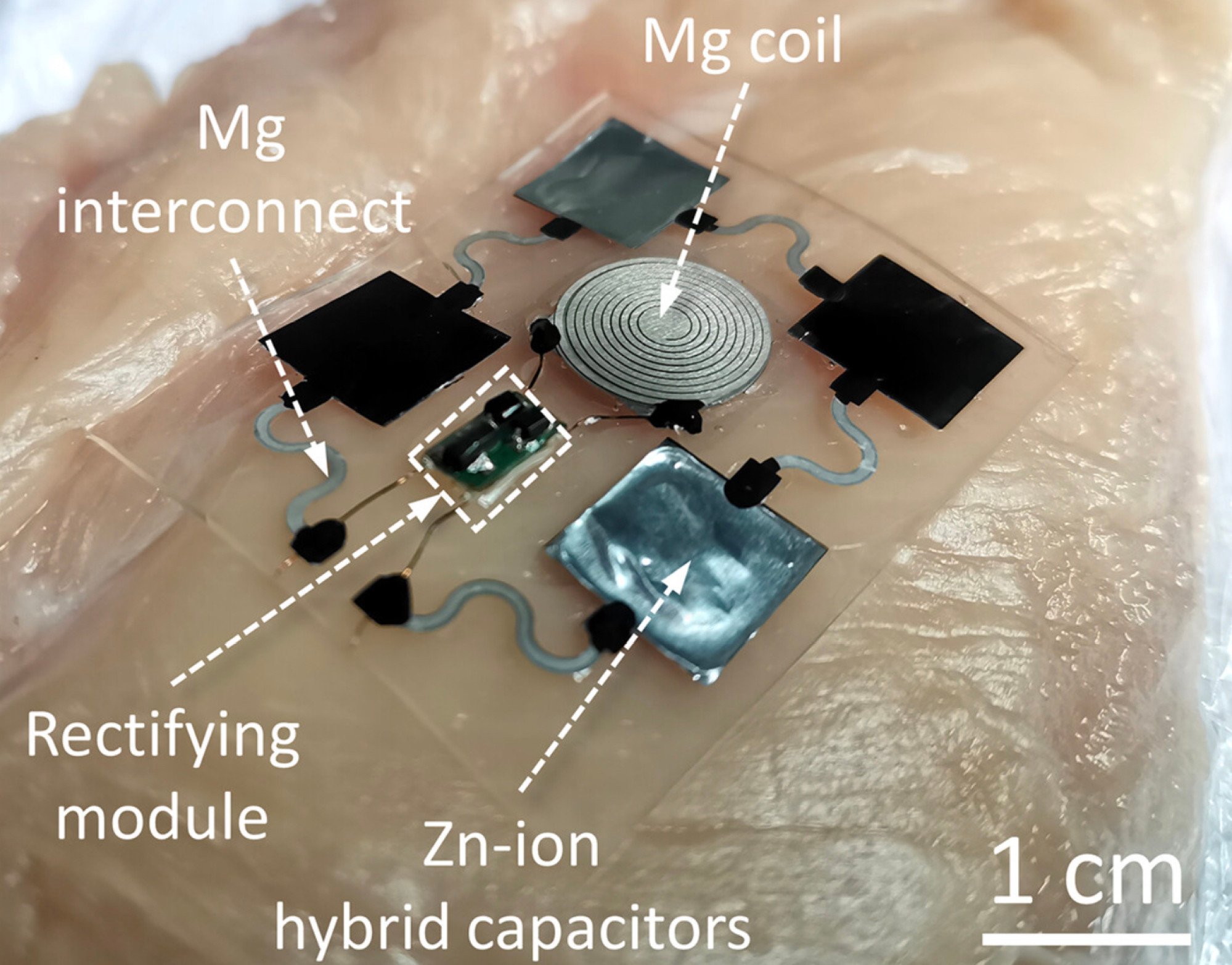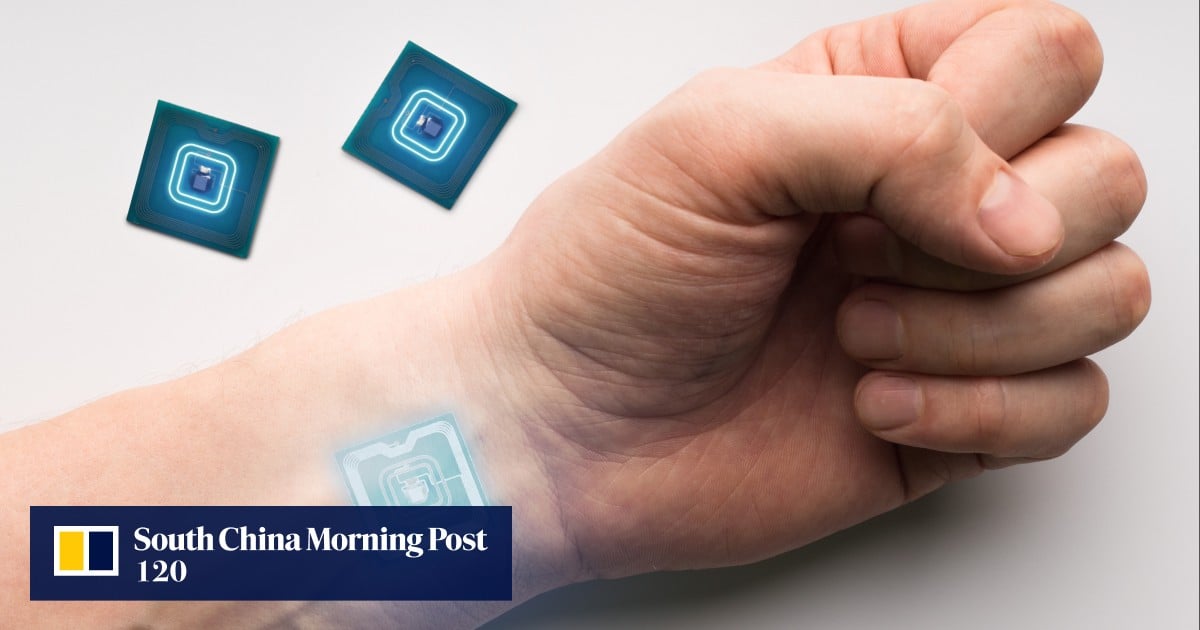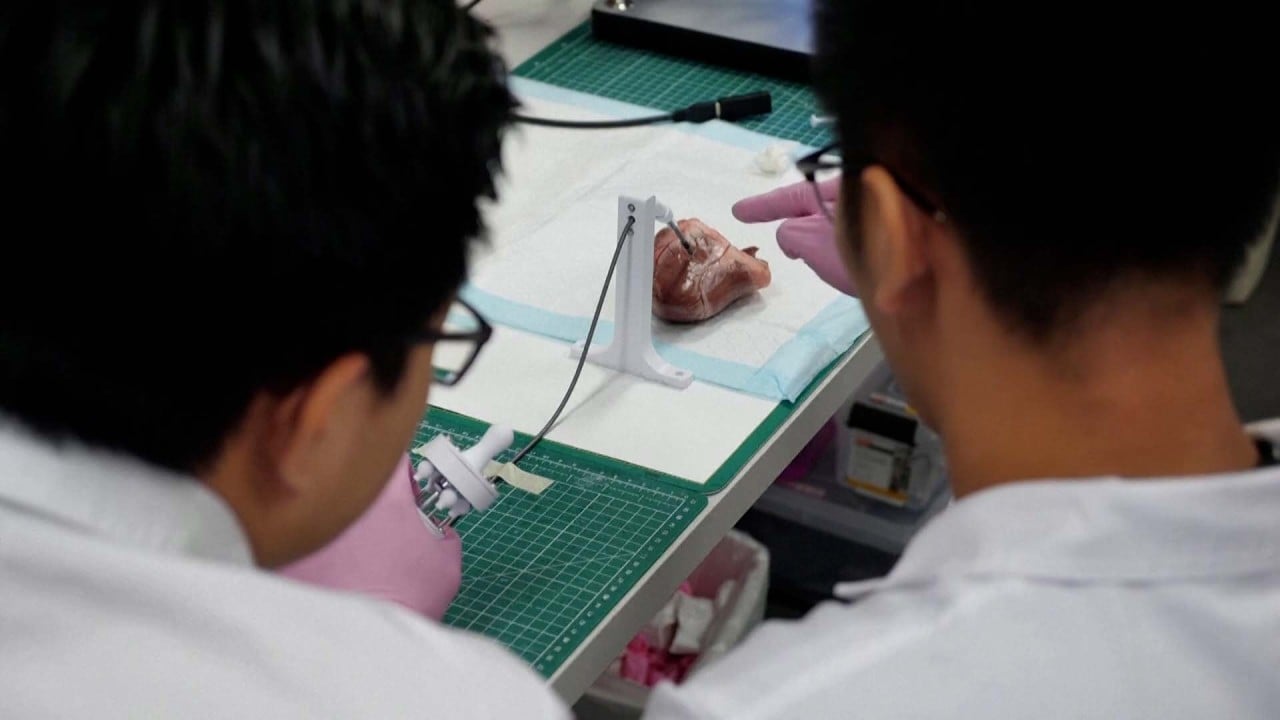A study found that power supply units connected to transdermal chargers can lead to inflammation, and those powered by non-rechargeable batteries may require surgical replacement, leading to potential complications.
To address these issues, researchers proposed a wireless implantable power system with superior energy storage performance and favorable tissue interfacing properties due to its soft, flexible design that adapts to tissue and organ shapes.

This wireless power supply device includes a magnesium coil that charges the device when an external transmitting coil is placed on top of the skin above the implant.
Supercapacitors store power as electrical energy, providing consistent and reliable energy discharge compared to chemical energy stored in batteries.
The prototype power supply system, contained in a flexible biodegradable chip-like implant, integrates energy harvesting and storage, ensuring a constant and reliable power output once charging is complete.
Micro robot made by Hong Kong academics kills 99% of medical implant bacteria
Micro robot made by Hong Kong academics kills 99% of medical implant bacteria
Both zinc and magnesium contained in the device are below daily intake levels, making the dissolvable implants biocompatible.
The entire device is encapsulated in polymer and wax, allowing it to bend and twist according to the tissue structure it is placed in.
Rat tests indicated that the device works effectively for up to 10 days and fully dissolves within two months, with its functionality able to be altered by changing the encapsulation layer.
The paper also discusses how drug delivery systems can be integrated into different body tissues and organs, playing a crucial role in localized, on-demand drug delivery and therapy.
Researchers connected stacked supercapacitors with a receiving coil and a biodegradable drug delivery device and implanted it into rats to demonstrate its functionality, monitoring its effectiveness for 12 hours and finding significantly lower temperatures compared to the control group without implants.
The prototype represents an important advance in transient implantable bioelectronic devices, providing effective and reliable energy solutions for a wide range of applications.



